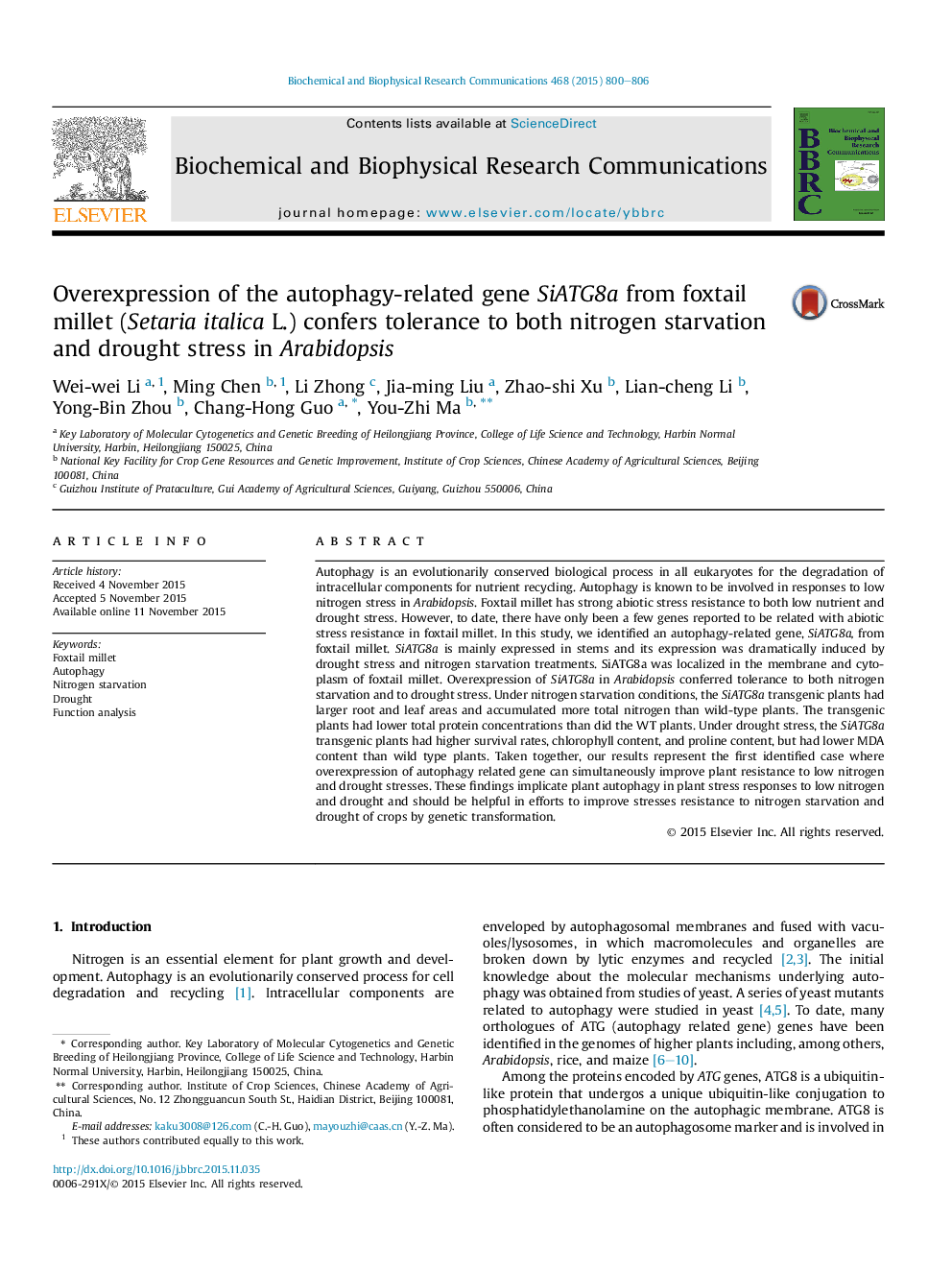| Article ID | Journal | Published Year | Pages | File Type |
|---|---|---|---|---|
| 10749221 | Biochemical and Biophysical Research Communications | 2015 | 7 Pages |
Abstract
Autophagy is an evolutionarily conserved biological process in all eukaryotes for the degradation of intracellular components for nutrient recycling. Autophagy is known to be involved in responses to low nitrogen stress in Arabidopsis. Foxtail millet has strong abiotic stress resistance to both low nutrient and drought stress. However, to date, there have only been a few genes reported to be related with abiotic stress resistance in foxtail millet. In this study, we identified an autophagy-related gene, SiATG8a, from foxtail millet. SiATG8a is mainly expressed in stems and its expression was dramatically induced by drought stress and nitrogen starvation treatments. SiATG8a was localized in the membrane and cytoplasm of foxtail millet. Overexpression of SiATG8a in Arabidopsis conferred tolerance to both nitrogen starvation and to drought stress. Under nitrogen starvation conditions, the SiATG8a transgenic plants had larger root and leaf areas and accumulated more total nitrogen than wild-type plants. The transgenic plants had lower total protein concentrations than did the WT plants. Under drought stress, the SiATG8a transgenic plants had higher survival rates, chlorophyll content, and proline content, but had lower MDA content than wild type plants. Taken together, our results represent the first identified case where overexpression of autophagy related gene can simultaneously improve plant resistance to low nitrogen and drought stresses. These findings implicate plant autophagy in plant stress responses to low nitrogen and drought and should be helpful in efforts to improve stresses resistance to nitrogen starvation and drought of crops by genetic transformation.
Related Topics
Life Sciences
Biochemistry, Genetics and Molecular Biology
Biochemistry
Authors
Wei-wei Li, Ming Chen, Li Zhong, Jia-ming Liu, Zhao-shi Xu, Lian-cheng Li, Yong-Bin Zhou, Chang-Hong Guo, You-Zhi Ma,
